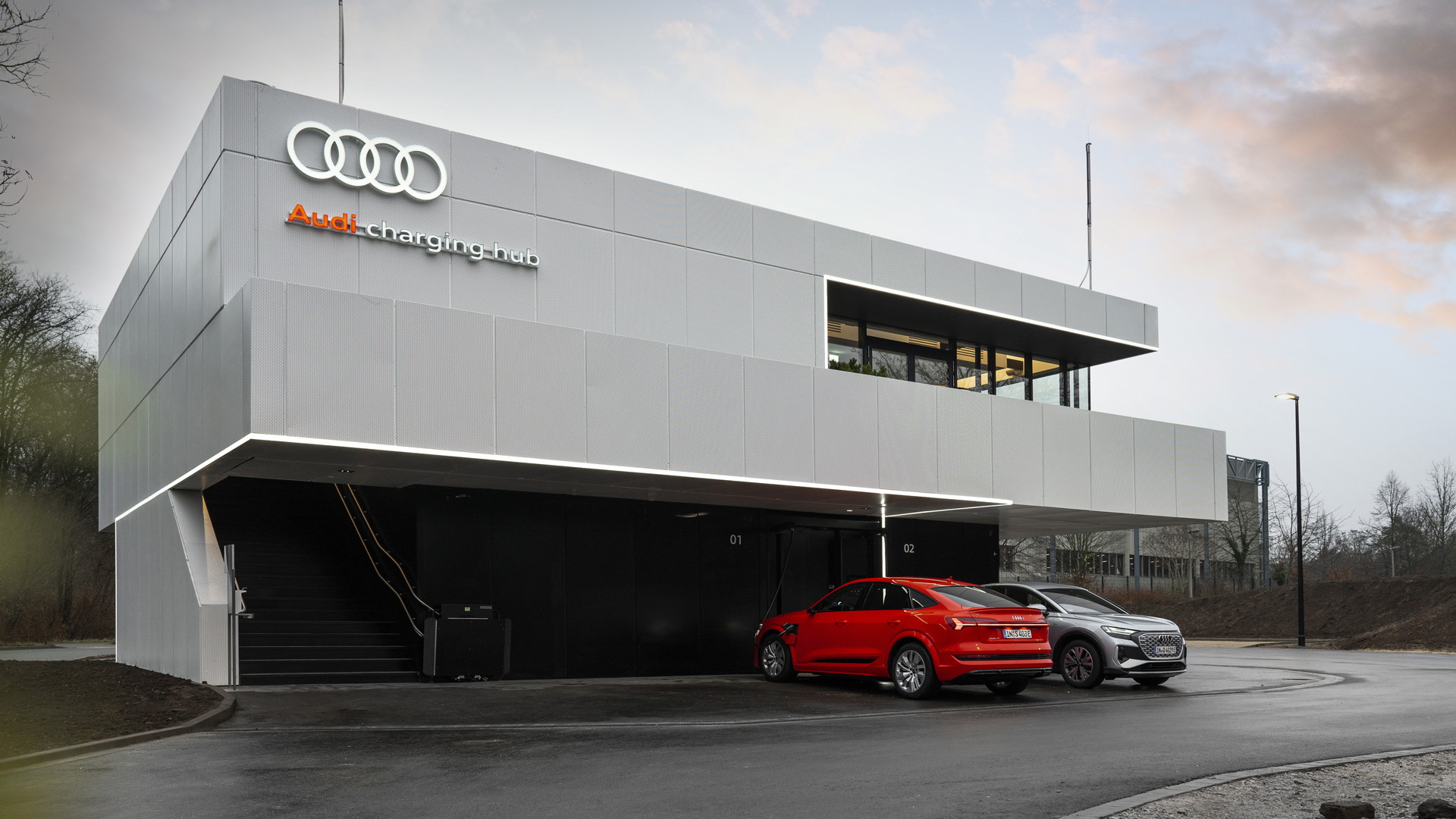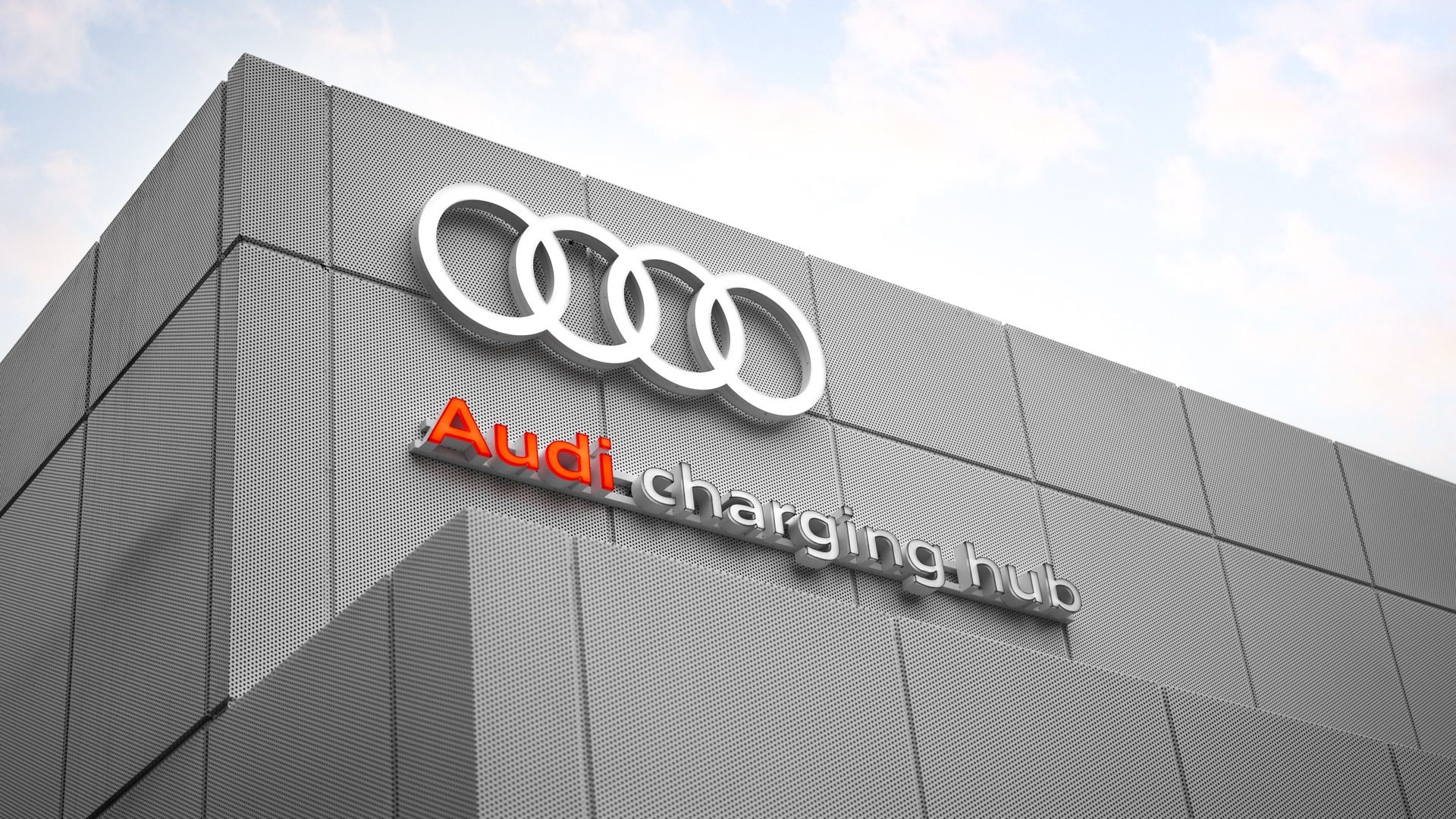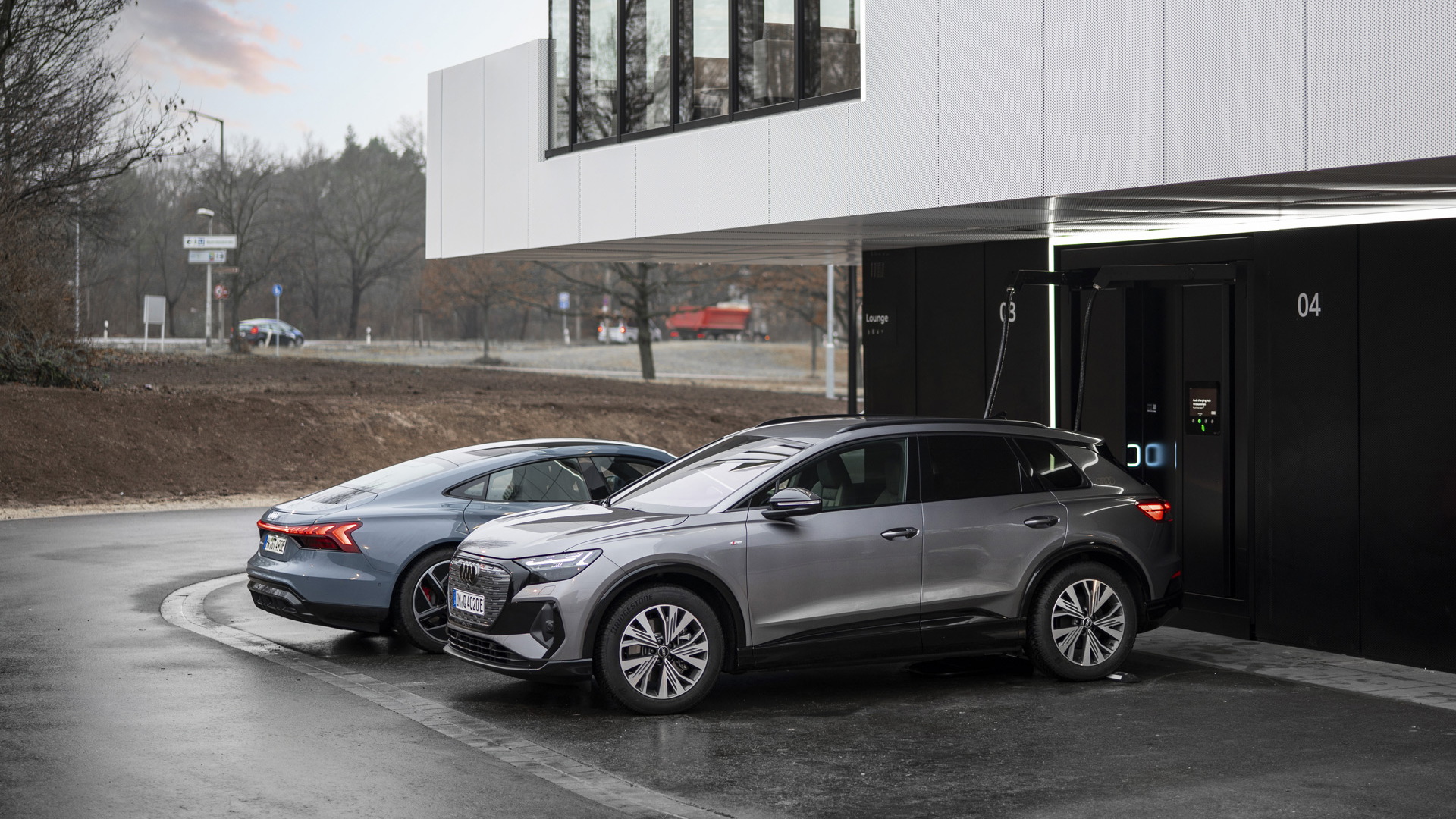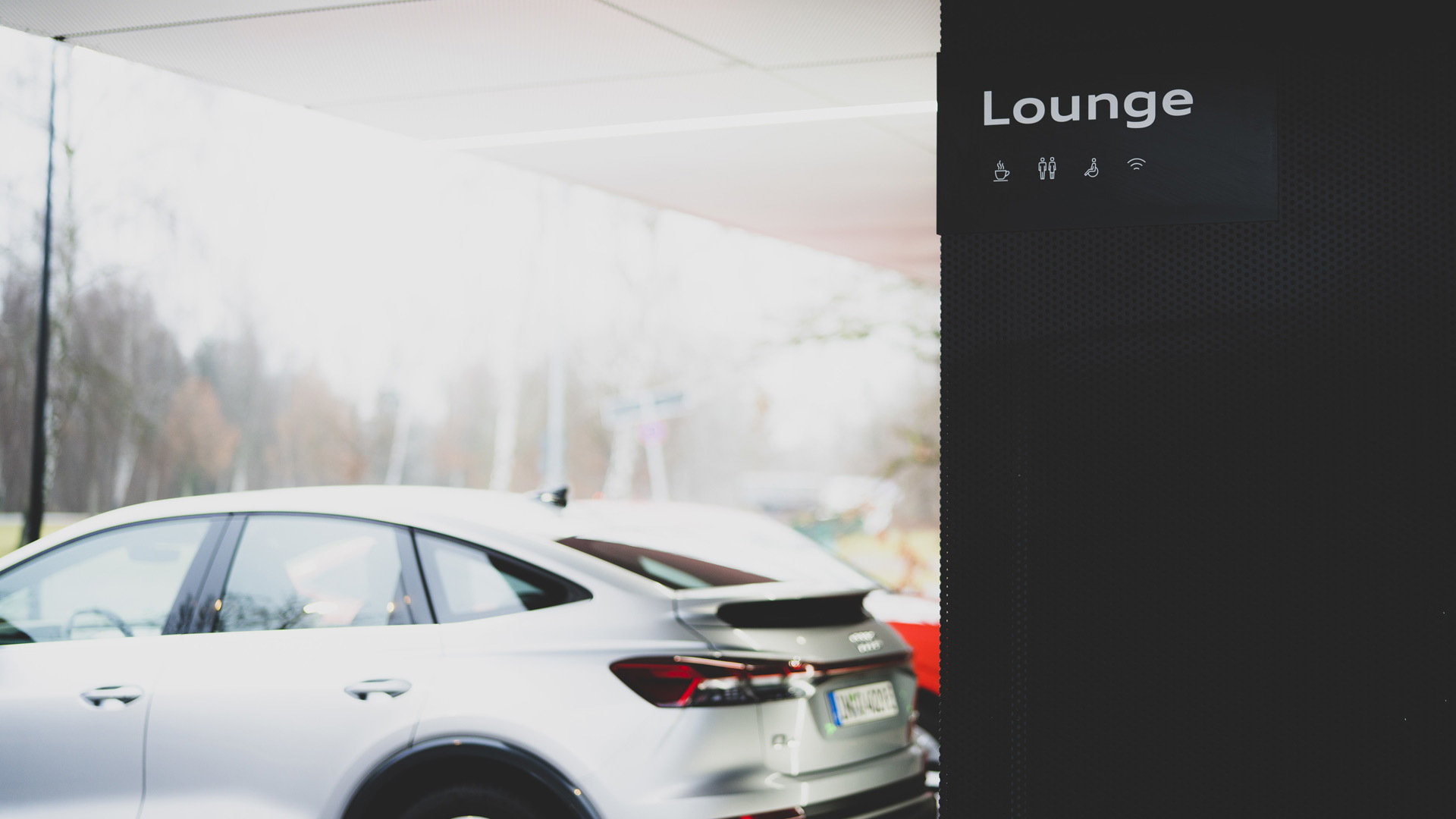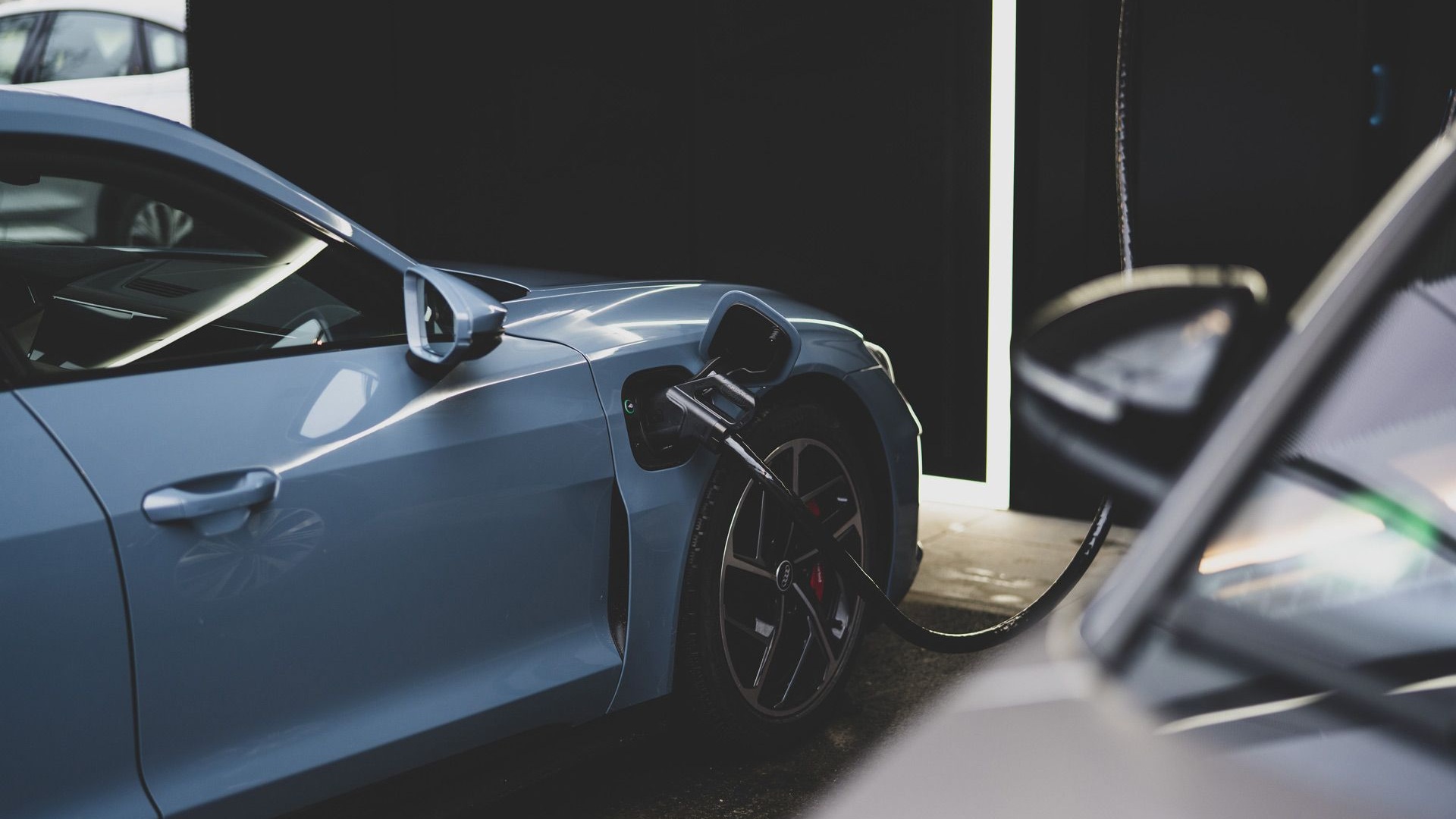Audi recently unveiled a new way to add urban charging options, based around modular "hubs" that include charging stations and airport-like lounges.
Such hubs could provide an option for drivers who can't charge at home, and could handle anticipated future demand for charging in urban areas, Audi said in a press release. The automaker said it planned to open a pilot charging hub at the Nuremberg Exhibition Center in Germany December 23.
The hub is composed of cubes that can be assembled and disassembled in a few days, according to Audi. They contain DC fast-charging stations, which are powered by second-life battery packs from dismantled Audi development vehicles.
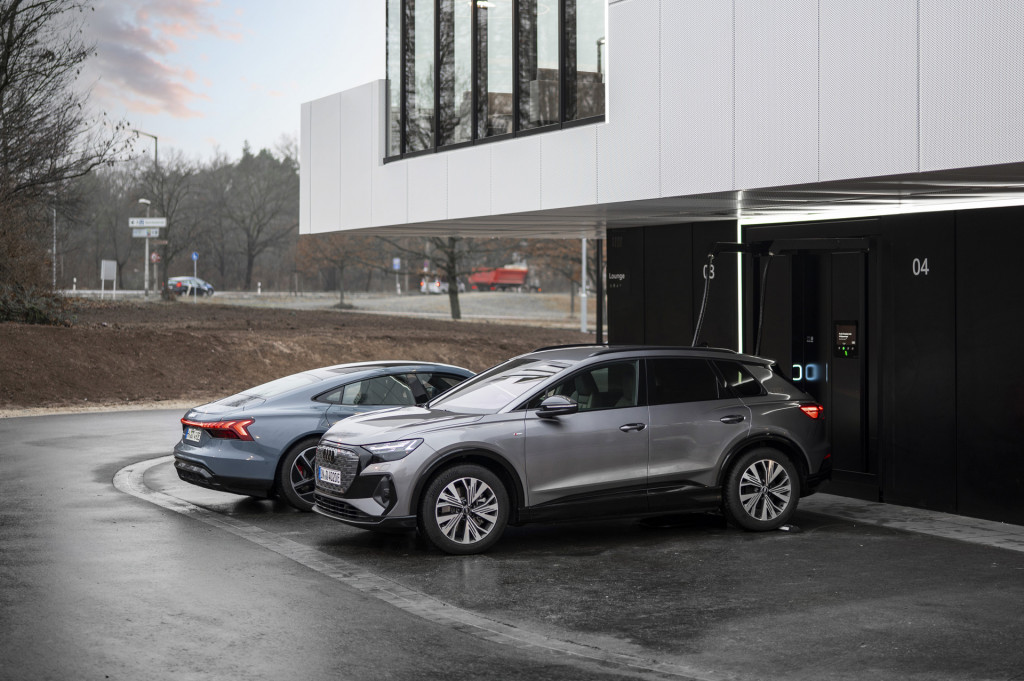
Audi Charging Hub concept in Nuremberg, Germany
The battery packs' 2.45 MWh of storage capacity means stations don't need a high-voltage connection to the grid, reducing cost and complexity, Audi noted. A 200-kilowatt low-voltage connection will suffice, while solar panels provide up to 30 kw of additional power, the automaker said.
This setup powers six charge points at up to 320 kw, according to Audi. That's enough to allow an E-Tron GT to charge its its maximum 270-kw rate, the automaker noted. It's also enough to handle charging 80 cars per day, Audi claims.
At the Nuremberg site, customers can sign a charging contract with a flat price of 31 cents per kwh, regardless of charging rate. That's competitive with electricity prices for home charging, according to Audi. The hub also supports the Plug and Charge protocol.
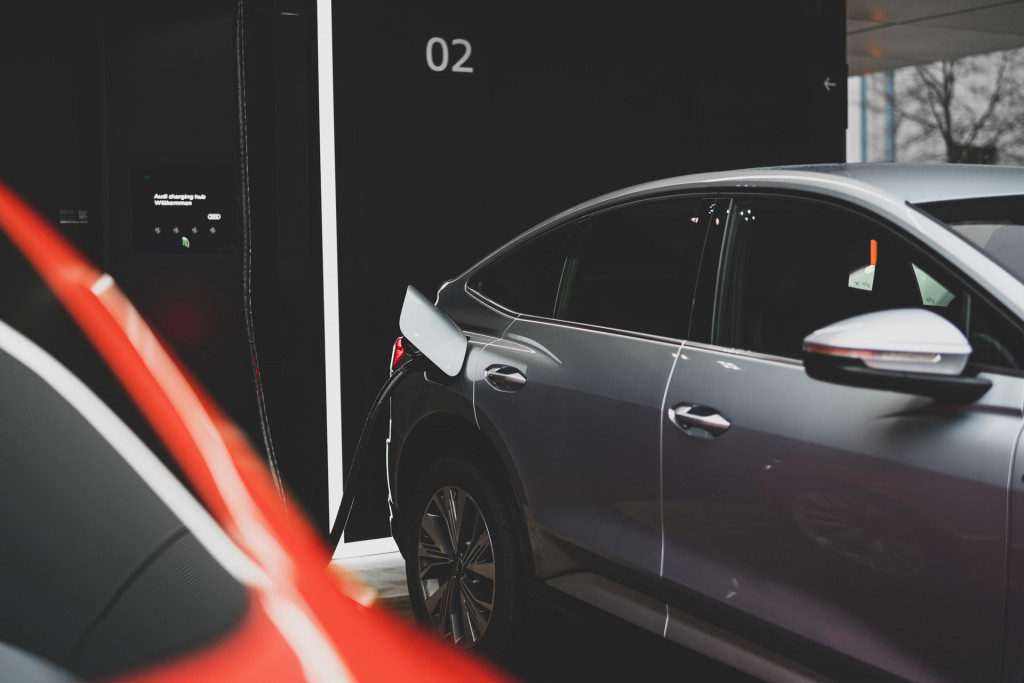
Audi Charging Hub concept in Nuremberg, Germany
The hub also includes a 2,153-square-foot lounge, complete with a 431-square-foot patio, so drivers have a place to hang out while their cars charge. While it remains a pilot program, the charging hub could address real issues with urban EV driving.
As we've noted many times in the past, while the suburbs are great for EVs, urban owners have an entirely more difficult set of barriers to navigate—not just that they have a parking space, but that they have a charger there they can plug into each night.
Meanwhile siting DC fast-charging stations is challenging, and battery buffering plays a key role in helping reduce the reliance on grid location. EVgo has been one of the only DC fast-charging networks focusing on urban fast-charging needs, rather than road-trip waypoints.
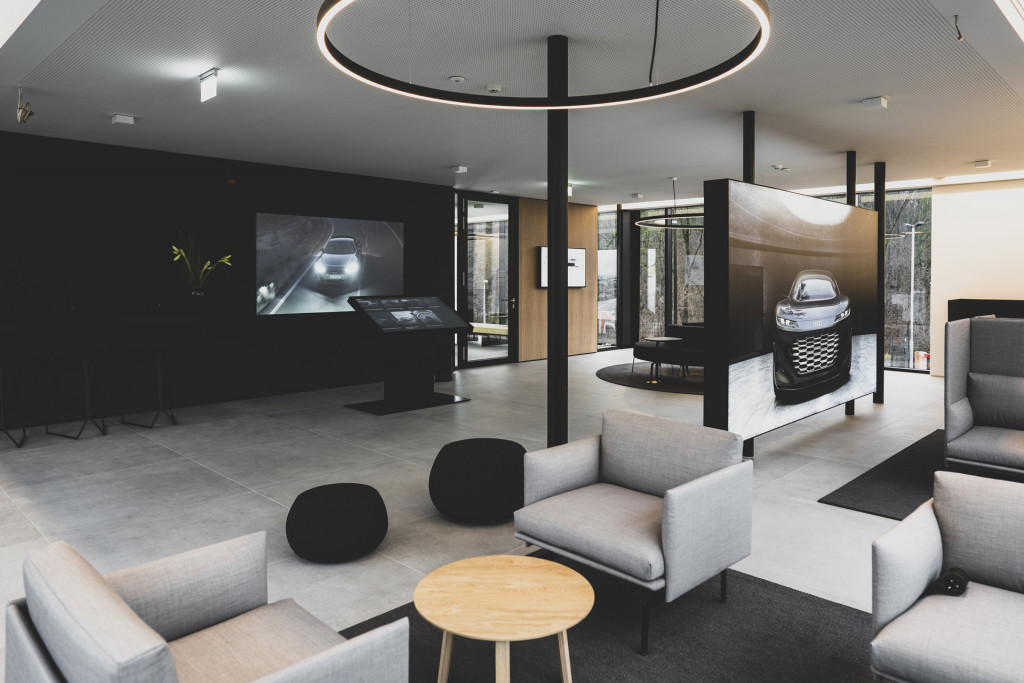
Audi Charging Hub concept in Nuremberg, Germany
General Motors is looking to its dealerships for more Destination Chargers in urban areas, but those will be Level 2 for rates you'd likely use only occasionally.
Shell-owned Ubitricity has devised charging hardware that can fit into streetlight posts, providing charging access to street-parked cars, but it's only planning to deploy it in the United Kingdom so far. The goal is 50,000 stations by the end of 2025.

